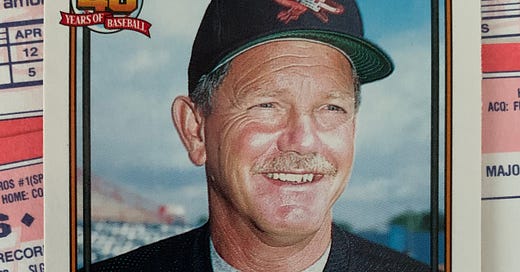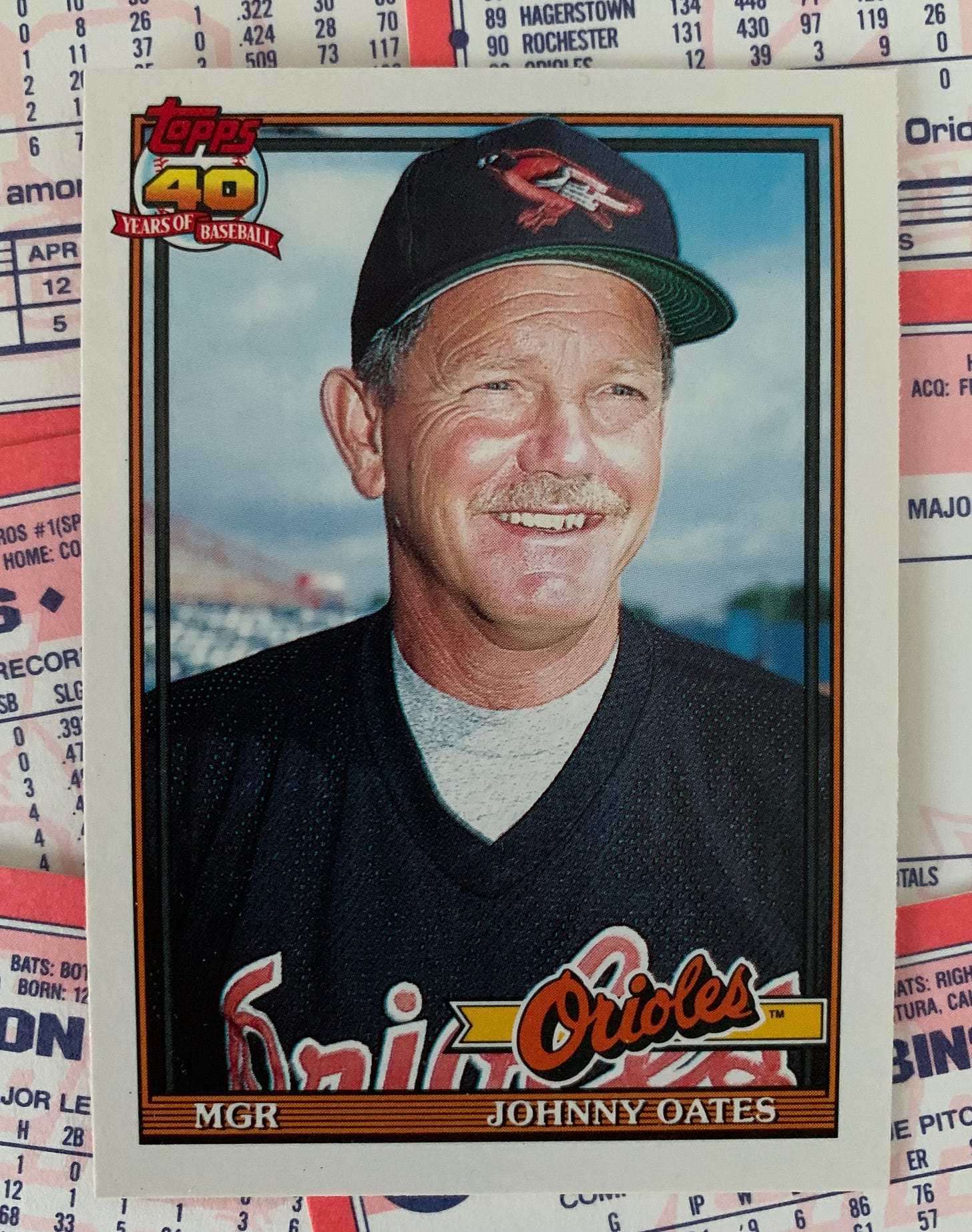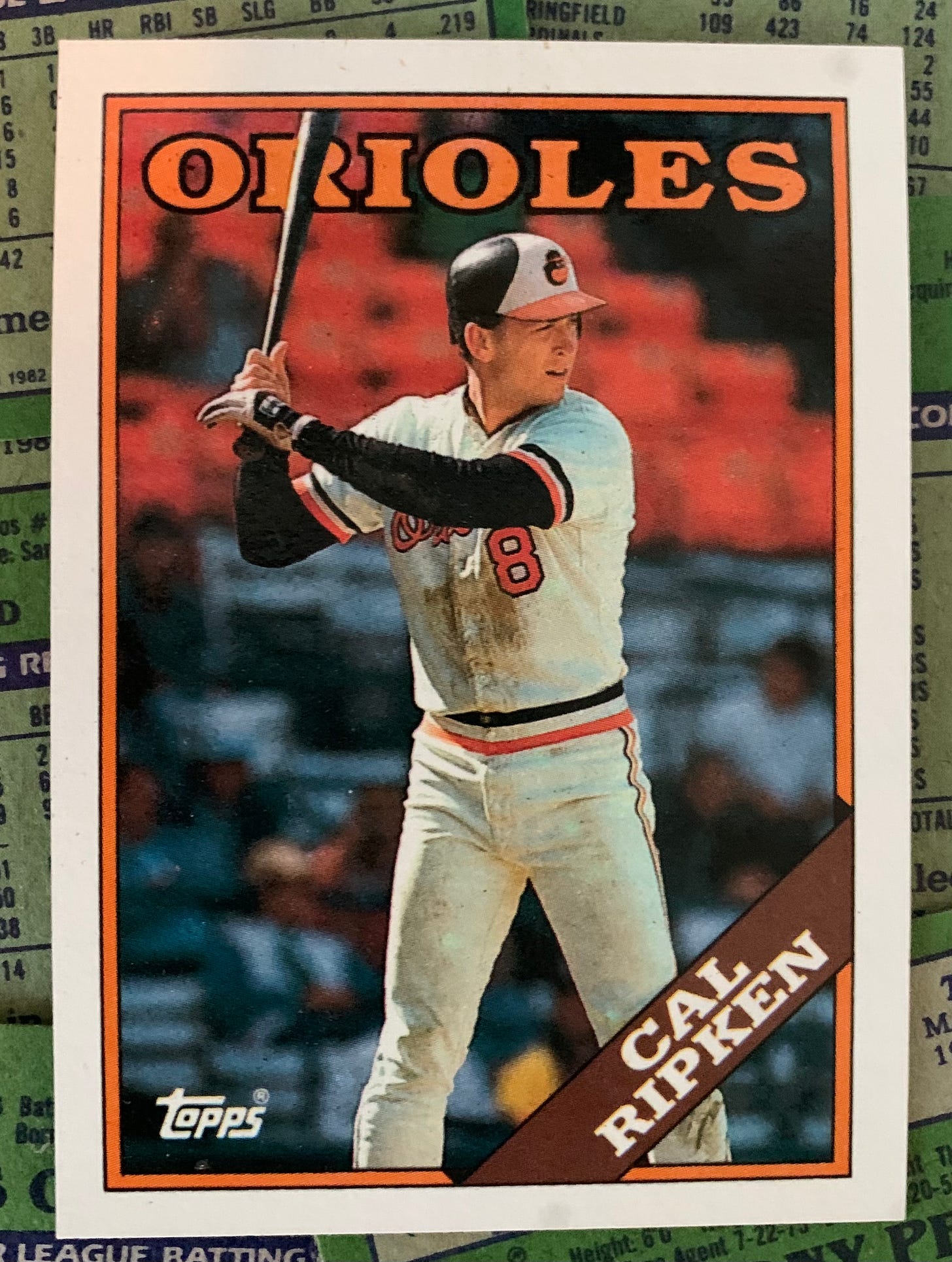Welcome to Warning Track Power, a weekly newsletter of baseball stories and analysis grounded in front office and scouting experiences and the personalities encountered along the way.
Late in the 1984 season, with postseason baseball a near certainty at Wrigley Field for the first time in nearly 40 years, Rick Sutcliffe approached Johnny Oates during Cubs batting practice. Oates, the team’s bullpen catcher, was on the bucket in shallow center field, collecting baseballs as they were lobbed in by players shagging. Sutcliffe, really, was just killing time during BP.
“If you had your career to do over again,” Sutcliffe, who would capture the NL Cy Young Award that year, asked the coach, “what would you change?”
“I never enjoyed it,” Oates replied about his time as a player. “I always wanted more. I never took a moment to be thankful for what I had.”
For Sutcliffe, enjoying his time in uniform was never a problem. He played for the Cubs before there were night games at Wrigley. And even after the lights went on — on August 8, 1988 — there were still plenty of day games. Ever have a free night in Chicago? Now imagine having six months of free nights. While playing for the Cubbies.
Nonetheless, Oates’ words stuck with Sutcliffe.
He was reminded of them during the 1992 season. Oates was now managing the Orioles, and Sutcliffe was the reliable veteran and leader of the pitching staff. After a tough road loss, Sutcliffe remembers his manager coming into the clubhouse and destroying the post-game spread. Trays of food were tossed, tables flipped.
It was uncharacteristic and caught the entire team by surprise. Oates’ anger was such that Sutcliffe says, “He was kind of foaming at the mouth.”
With his tirade complete, the skipper turned to his pitcher and asked, “Sut, what do you got to say?”
Sutcliffe, whose jovial tone turned somewhat dour when retelling this story 30 years later, responded that he had nothing to add, and he hit the showers.
That night, back at the hotel, Sutcliffe called Cal Ripken Jr. He wanted help in confronting their manager regarding his behavior. He was concerned.
Johnny Oates, as written about earlier this week, was a first-round draft pick of the O’s — the 10th overall selection in January 1967 out of Virginia Tech. He learned to play the game “The Oriole Way” — a philosophy and style of play that stressed fundamental and opportunistic baseball and never beating yourself. It was a doctrine that pervaded all levels of instruction in the organization and linked generations of players who wore orange and black.
For this important conversation with the manager, Sutcliffe enlisted the player who was born into the Oriole Way, the eventual Hall of Famer who also may have been the final product of the Oriole Way.
When Sutcliffe called Ripken, the Iron Man invoked the advice of Cal Sr: “My dad always told me to sleep on it.”
The next day, the two players arrived at the ballpark early so they could address Oates privately.
“Johnny, you haven’t done anything wrong,” Ripken assured him. Rehashing the prior night’s game, he cited the pitching matchups that the manager employed. He brought in the left-handed reliever to attack the left-handed hitters. He went with his reliable righty when the lineup turned right-handed heavy. Oates had put his players in the best position to succeed. The players, simply, failed to do their jobs.
Sutcliffe remembers the look on Oates’ face as Ripken delivered the message. He remembers the manager’s shoulders dropping. The relief, the comfort.
“Here’s Cal telling him this,” Sutcliffe says, fully aware that no other voice in the organization could carry so much influence.
From that point on, Oates began enjoying life, enjoying the game. Ironically, the Orioles GM and Oates’ boss at the time was none other than Roland Hemond, whose motto was “enjoy the moment.”
Sutcliffe believes that once Oates got to Texas, where he managed the Rangers for six-plus seasons, the appreciation for what he was doing and had accomplished finally set in. During that stint, Oates led the Rangers to three AL West titles and was named the AL Manager of the Year in 1996.
All of this “for a guy who thought he was just going to be a bullpen catcher,” Sutcliffe says.
The season is underway, and WTP is offering free and paid versions. Thank you to all who have supported this newsletter with a paid subscription. Subscribe now and never miss a single edition.





If only Cal Ripken would sit me down and tell me to enjoy the moment, I might actually listen.